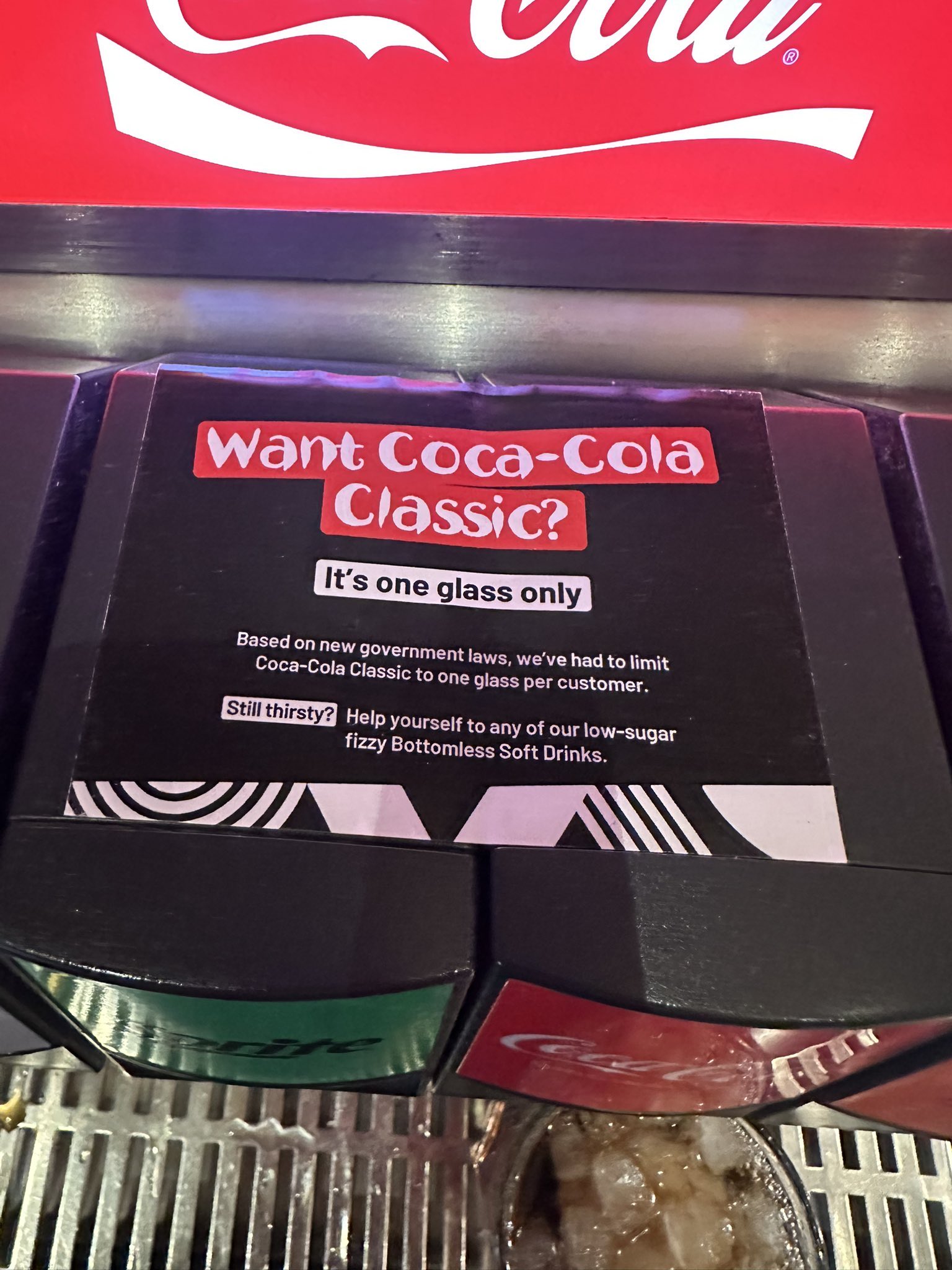During a busy lunchtime at Nando’s, a staple of casual dining has quietly changed—the bottomless Coca-Cola machine is now limited to a single refill for its full-sugar version. This small yet impactful adjustment reflects a broader shift in Britain’s approach to sugar consumption. The restaurant chain confirmed that this decision aligns with new government regulations aimed at reducing free refills of high-sugar soft drinks, a crucial part of ongoing efforts to address the rising obesity rates and related health issues in the nation.
Diet versions, such as Coke Zero and Sprite Zero, remain available for unlimited refills, emphasizing a clear message: access to sugary drinks is no longer taken for granted. This change not only affects consumer habits; it symbolizes a significant public health challenge that is transitioning from personal responsibility to systemic change.
Recent data from the Health Survey for England 2022 (NHS Digital) highlights the gravity of the situation: 64% of adults in England are classified as overweight or obese, with around 29% falling into the obesity category—up from just 14% in the early 1990s. Among children aged 2 to 15, obesity affects 15% of this demographic, while an alarming 27% are considered overweight or obese. The rising trend is particularly severe among older teenagers and in socioeconomically deprived areas, where obesity rates can be almost double those in more affluent communities (Office for Health Improvement and Disparities, 2025).
The financial implications of obesity are staggering. It is estimated that obesity-related illnesses cost the NHS over £6.5 billion annually, while the broader UK economy suffers losses of approximately £27 billion each year due to decreased productivity and health complications. Geographically, the burden is uneven, with higher obesity rates recorded in the North East, Yorkshire, and the West Midlands, contrasting sharply with London, which reports the lowest average BMI.
Yet, the prevalent narrative of ‘Britain is obese’ does not tell the complete story. Recent data indicates that measured obesity rates have plateaued, suggesting that while the issue remains significant, it may not be escalating at the same rate as before. Public health experts attribute some of this stabilization to effective government policies, such as the Soft Drinks Industry Levy, that has prompted beverage manufacturers to reduce sugar content by nearly 30% since 2018. Additionally, there has been a notable increase in calorie labeling across restaurants and stricter regulations on junk food promotions.
Critics, however, argue that these measures are either paternalistic or merely superficial, positing that banning refills or promotions alone cannot transform deeply entrenched food habits influenced by inequality, convenience, and stress. Nevertheless, research suggests that even modest decreases in sugar availability can yield significant public health benefits over time. A study published in The Lancet Public Health in 2022 found that a reduction in the average daily sugar intake by just 30% could prevent tens of thousands of diabetes cases each year.
While a single refill limitation at Nando’s will not resolve the obesity epidemic overnight, it signals a cultural shift: the end of the era where excess sugar consumption was largely overlooked. Although Britain may not be as excessively overweight as some headlines suggest, the nation is undeniably heavier, more sedentary, and experiencing more metabolic stress than it was a generation ago. In this broader context, the move to limit bottomless Coke refills might reflect not a restriction but a necessary course correction, angling towards a healthier future for the populace.






